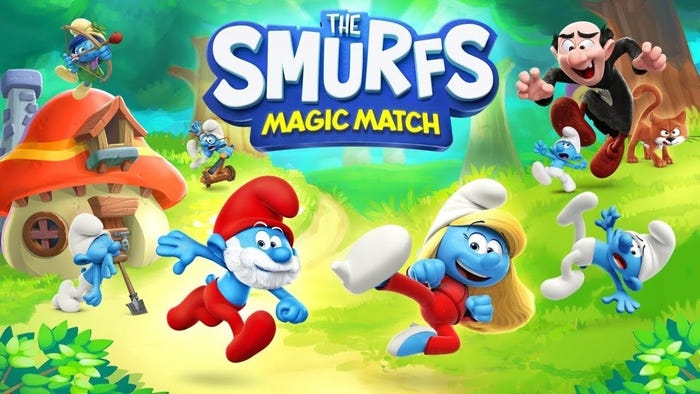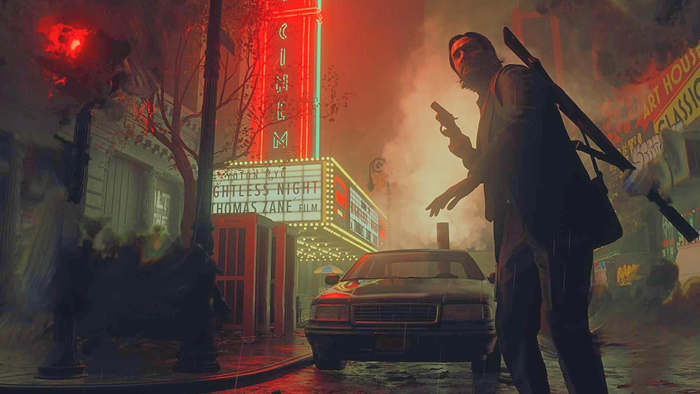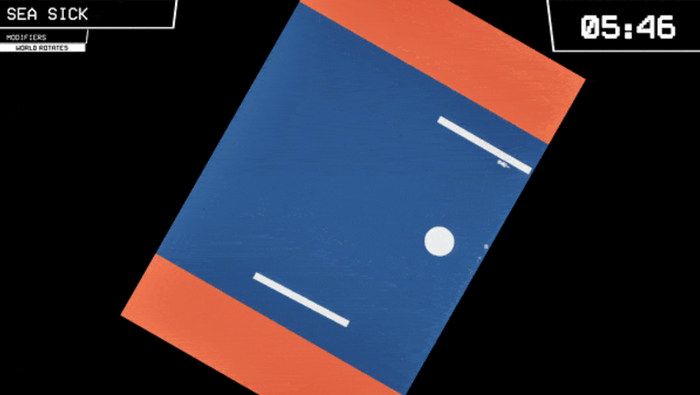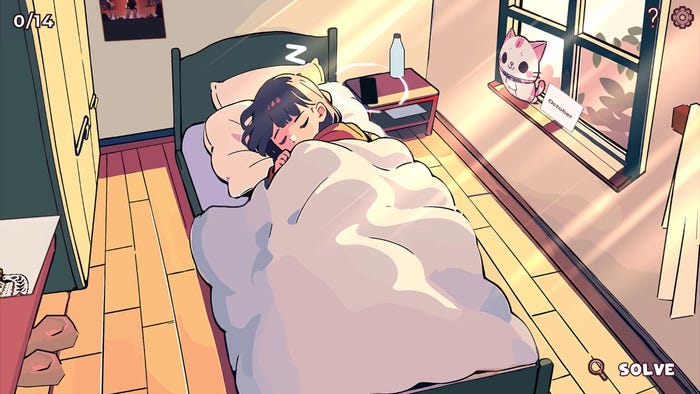
Featured Blog | This community-written post highlights the best of what the game industry has to offer. Read more like it on the Game Developer Blogs.
On The Economics Of Content Updates, DLC And In-Game Advertising
A view from an indie developer on some of the issues raised around price of games, DLC and finding "other ways" to dig cash out of games.

This one was kicked off in my mind this morning, reading some of the feedback from the content we released for Killing Floor yesterday. For those how missed it, we pushed out a large (FREE) content pack (more maps, more weapons, more monsters etc) plus a for-pay DLC character pack ($2 on Steam). We also took the first steps into in-game advertizing, building in Massive's tech for displaying ads.
Why are we doing this? Well, we are a small, independent developer and publisher of games. We believe that people can and should get additional content for their games for free. We did it for 3 years with Red Orchestra and now we're doing it with Killing Floor. But we also have to make money - it is one of the evils of the capitalist system. If we don't generate good old-fashioned cash, the business dies. And support for our games would die along with us.
We also fund our own development, with the exception of advances against sales, when we can get them. We don't give up ownership of the IP or the company or any control of either. That is what makes us "independent". It also means we don't have a Big Evil Publisher (or Vulture Capitalist or anyone else) handing us big stacks of development funding.
So, we are looking at all the ways we can generate extra cash from our titles. Always. Every day of the week. We are learning, with each step, which works - and which doesn't.
The most basic: push out free content for the game, combine it with a free weekend and maybe a sale on Steam, too. This usually has the effect of giving us a good sales boost - online AND in the stores. But it is a gamble - will we get enough sales to cover the cost (and some profit)? To date, it has worked pretty well. We might well have actually spent too much time and effort doing it for Red Orchestra. May not have made money on some of the later ones - but it did do wonders for the players' opinion of us. That mythical "goodwill" thing.
Next steps: with Killing Floor, we thought we'd try out the whole for-pay DLC thing a little while back, selling for $2 on Steam. Important Rule (for us, anyway): do NOT make it something that people HAVE to buy. It must not be a game-changer. It must not splinter the fan-base. So we made it a character pack. 4 new playable characters that you can choose in-game.
Makes no difference to how you play - just how you appear to other players. It is bling. It is fun. It isn't NEEDED in order to compete. And people bought it. Some moaned about it - "I bought the game, why should I have to buy this?" The answer was simple - "you DON'T have to buy it." And people bought it. Not in huge numbers, but enough to make a profit on the effort. So we released another one yesterday and that is selling, too.
And the latest: yesterday, in the new content pack, we included Massive's tech into the game, to serve ads. We are set up to run video pieces in the in-game lobby, where players gather before kicking off a match. It will run 10-15 second video pieces - trailers. We earn cash off those ads. And there have been a few people reacting to it, on the lines of "I paid for the game, some of us bought the DLC, to support future FREE content - so why should we have to look at ads?"
To be fair, there has been a lot of response on the lines of "it isn't obtrusive and it helps us get more free content - so go for it." And there was our Important Rule for ads: it must not be intrusive and must not interfere with Gameplay. Massive got the idea instantly - hence the idea to serve trailers in the lobby, while people are tooling around before starting a match.
But lets deal with the point about "is it fair to paying customers?". We deliberately built Killing Floor on older tech (Unreal 2.5) so that it would run easily on most PCs from the last 5 years and so that we could keep the price-point down - $20 MSRP online and in stores. But that means less cash generated from each sale. Hopefully more sales, of course.
Play with numbers for a minute... [Disclaimer and warning: all the numbers are "generalised" so I don't get shot for breaching one of many NDAs and contracts. This isn't meant to be an exact accounting anyway - just an illustration!]
We ran a team of 12 for 3 months to create the latest content pack and DLC. "Accepted industry figures" suggests that it costs about $10,000 per developer per month to keep a studio running. Ok, we have low overheads and aren't located in Silicon Valley, so we're a touch cheaper than that, but it is an easy number to work with. That is $360,000 to produce said content.
If we sell 20,000 units of the DLC and make $1 per, that is $20,000, which helps, but hardly scratches the surface. If we make $10 per copy of Killing Floor sold across all channels (we don't but I can multiply by 10 in my head, without the need for a computer, calculator or my daughter to help out), then we need to sell an additional 34,000 copies of the game just to pay for the DLC, without making any profit on it. For those who don't know, that is NOT a small number. Hell, some games on PC only sell a TOTAL of 50,000 copies in their lifetime. The numbers are a bit over the top, but you get the idea.
So, did people buying the $2 DLC pay for the update. No way. Did it help? Yes, of course. So now we are trialling the in-game advertising. How much will we earn from that? I dunno. Time will tell.
And now here is the key economic point to all this: CASH. We have to generate enough cash every single month to stay in business. We aren't a huge great publically-traded company that can burn cash for months on end. We can't "do a Midway", take a cool billion from investors and promise "it'll be better next year".
We have to generate cash to pay the bills and the wages. We have to bank more cash so that we can keep paying in the quiet months while we build the next FREE content, which will generate more sales. We have to bank even more cash to pay for the months (years) of development of the next title (plug: Red Orchestra: Heroes of Stalingrad), because no-one else is going to give us the money to do the job.
So there is why we are trying out in-game advertising. Cash. To invest back into Killing Floor and future titles. That is where ALL the cash goes. But we stick to our rules - no game-changing DLC that you have to pay for. No in-game advertising that interferes with gameplay.
And will we try other schemes to make money? Damn right we will. Most likely next one is Killing Floor merchandising (you KNOW you want that t-shirt with the raging Fleshpound on it...). We won't get rich off it, but it all helps!
Oh, and this is why WE maintain the ownership of our own IP, to answer an old one thrown around a while ago. WE get to exploit it in every way we can and generate money to go on making games. We also get to push out FREE content and make people love us (we hope). Which should make them more inclined to buy our next game (we hope).
What was the educational message in all this ramble? Oh yes: it is very hard indeed to start up your own studio from scratch. It is even harder to fund your own first game. Gets even harder to get it published, let alone make enough money from that first game to make a second game. And it doesn't get any easier with the second game. It helps if you start publishing your own titles - and helps if you start to publish other people's as well. No easier with the third, as far as we can tell. But we've got this far.
Are we right or wrong to include in-game advertising in Killing Floor? If I am still here, writing as VP of Tripwire Interactive by GDC 2010, then we didn't get it drastically wrong. But watch this space and time (and cash) will tell!
Read more about:
Featured BlogsAbout the Author(s)
You May Also Like









